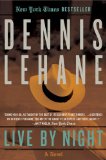Summary | Excerpt | Reviews | Beyond the book | Read-Alikes | Genres & Themes | Author Bio

From the book jacket:
"My life was ordinary until three years ago when
I was thrown out of a downtown hotel window. My
name is Robbie Brownlaw, and I am a homicide
detective for the city of San Diego. I am
twenty-nine years old.
I now have synesthesia, a neurological condition
where your senses get mixed up. Sometimes when
people talk to me, I see their voices as colored
shapes provoked by the emotions of the speakers,
not by the words themselves. I have what amounts
to a primitive lie detector. After three years,
I don't pay a whole lot of attention to the
colors and shapes of other people's feelings,
unless they don't match up with their words."
When Garrett Asplundh's body is found under a
San Diego bridge, Robbie Brownlaw and his
partner, McKenzie Cortez, are called on to the
case. After the tragic death of his child and
the dissolution of his marriage, Garrett --
regarded as an honest, straight-arrow officer --
left the SDPD to become an ethics investigator,
looking into the activities of his former
colleagues. At first his death, which takes
place on the eve of a reconciliation with his
ex, looks like suicide, but the clues Brownlaw
and Cortez find just don't add up. With pressure
mounting from the police and the city's
politicians, Brownlaw fights to find the truth,
all the while trying to hold on to his own
crumbling marriage. Was Garrett's death an
"execution" or a crime of passion, a personal
vendetta or the final step in an elaborate
cover-up? Amid rampant corruption and tightening
city purse strings, whatever conclusion Brownlaw
comes to, the city of San Diego -- and
Brownlaw's life -- hangs in the balance.
Comment: The week in which I read The
Fallen I started three thrillers, but The
Fallen was the only one that I finished. I
felt a bit like Goldilocks - one thriller was
too macho, another was too gory - only The
Fallen was just right, combining well drawn
characters with a solidly told police procedural
(by which I mean that there are no great leaps
of coincidence that lead to the solving of the
crime, just sound, time-consuming police-work,
following leads up blind allies, and back down
again until the right path is explored).
Like all Parker's novels, The Fallen is
set in Southern California, but in San Diego, as
opposed to Orange County that has been the
setting for most of his books. The change
of location was precipitated by Parker and his
family moving to San Diego County themselves
about 5 years ago, and being an author who loves
to write about where he lives he has made San
Diego Country the backdrop to at least two of
his recent books: The Fallen and
Cold Pursuit (2003).
Another characteristic of Jeff's novels are that
a central character suffers some sort of loss
but finds a way to move on with his or her life.
When asked what he feels is the key to rising
above life's challenges and disappointments,
Jeff replies: "For me it was always a
matter of putting one foot in front of the
other. I remember doing that, literally, after
the death of Catherine, my first wife. She died
of a brain tumor when she was very young. After
that, I just followed my feet around the house
to get some work done; around town to get some
groceries; to the beach or the hunting meadow or
the tennis court or whatever. Friends and family
get you through. Deaths like that make you
stronger, I think, in the long run. Maybe they
give you some perspective, some protective
experience.
If you're looking for a page-turner that you can
still respect in the cold light of morning, take
a look at one of Jeff Parker's 13 novels -
you'll find three excerpted at BookBrowse.
![]() This review was originally published in The BookBrowse Review in March 2006, and has been updated for the
January 2007 edition.
Click here to go to this issue.
This review was originally published in The BookBrowse Review in March 2006, and has been updated for the
January 2007 edition.
Click here to go to this issue.

If you liked The Fallen, try these:

by Dennis Lehane
Published 2013
Live by Night is a riveting epic layered with a diverse cast of loyal friends and callous enemies, tough rumrunners and sultry femmes fatales, Bible-quoting evangelists and cruel Klansmen, all battling for survival and their piece of the American dream.

by Tina Whittle
Published 2011
Tai Randolph thinks inheriting a Confederate-themed gun shop is her biggest headache - until she finds a murdered corpse in her brother's driveway.
I am what the librarians have made me with a little assistance from a professor of Greek and a few poets
Click Here to find out who said this, as well as discovering other famous literary quotes!
Your guide toexceptional books
BookBrowse seeks out and recommends the best in contemporary fiction and nonfiction—books that not only engage and entertain but also deepen our understanding of ourselves and the world around us.